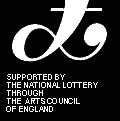Extracts from Lucien Stryk’s The Awakened Self: Encounters with Zen
published by Kodansha, 1995.
Waning Moon Press is grateful to Lucien Stryk for permission to quote extended
extracts from his writings.
Rinzai Zen Master Nakamura is interviewed by Lucien Stryk:
Nakamura: There's nothing intrinsically Zen in any art, in spite of the way
some seem to reflect Zen principles. It is the man who brings Zen to the art he
practices.
Stryk: But surely some arts would not have developed as they did had it not been for
Zen. Haiku, for example. Basho was profoundly Zenist, an enlightened man, and
quite possibly for that reason haiku became an important art.
Nakamura: There is to be sure a strong taste of Zen in his best poems, and
it’s true he studied Zen with the master Butcho. Perhaps he best illustrates
the point I am making. He brought Zen to the art of haiku, which was well-established
before he came onto the scene. It wasn't really there before him.
Stryk: It might equally be said, would you agree, that there was not true haiku before
him? Surely, from Basho on, there’s something characteristically Zen-like in
the form itself. The greatest haiku contain the sense of revelation we associate with
Zen, and there’s compression.
Nakamura: Many haiku, those of its finest practitioners, have no Zen whatsoever.
No, it is man who fills a poem with Zen.
Haiku writer Fujiwara of the "traditional" strict-form Ten-Ro school is interviewed by
Lucien Stryk.
Fujiwara: Haiku, we like to feel, is the greatest of the Zen arts. As you know, Basho,
our greatest haiku writer, was a Zenist. All important haiku artists have been….
Every place is full of poetry. All one has to do is go find the poems. That’s
why we can write one hundred poems in a day about a place we visit. We select an
interesting and beautiful place and, on the spot, compose its
poetry…We’re made aware, through active seeking, of the presence of
poetry all around us; we begin, slowly to be sure, to see our personal world in the
same spirit. I assure you the practice is based on fundamentals which lead to great
discoveries.
Fujiwara: A good writer ignores no aspect of contemporary life.
Stryk: Machines, automobiles, highrises, that sort of thing?
Fujiwara: Why not, among many? They make our world, whether we like it or not. In
Ten-Ro we examine everything, nothing is too low or high for us.Traditional in
method, we are very modern in spirit.
Stryk: Then the work of Basho is archaic in language?
Fujiwara: The themes are not as interesting. It excites me to see how far one can
take haiku into reality – very challenging to write of things never before
associated with art.
Stryk: How many feel as you do on that subject?
Fujiwara: All good writers! The others are for the most part poor imitators of Basho
and Buson, using their language, images, and I suspect they know it. Disgraceful,
yet they can’t help it…
In haiku there is a weeding out of all that would clutter, muddy, confuse, - leading to
great incisiveness, clear purpose. What we are looking for, guided by Zen, is
revelation. Small as it is, the haiku is a repository of great wisdom, has been now for
centuries.
Haiku writer Uchijima of the "free verse" So-Un school is interviewed by Lucien Stryk.
Stryk: The So-Un school is perhaps the most unusual in the history of the art. In
some quarters it’s little short of notorious!
Uchijima: Yes, the first So-Un writes were clearly influenced by the the writers of
free verse, but, if anything, their innovations were more daring. Never in three
hundred years had anyone dared depart from strict haiku form.
Stryk: You mean the abandoning of the seventeen-syllable limitation?
Uchijima: That was the most obvious break with the past, but not the only. The idea
behind all of So-Un’s departures from the norm was precisely that they had
become the norm. Our first writers wanted to restore haiku’s vigour: the art
was in a bad way – little originality, less depth. They wanted to return to the
spirit of Basho. We’re still trying to do just that.
Stryk: Were the first So-Un poets Zenists?
Uchijima: Yes, above all they wanted their works to have Zen spirit.
Stryk: How would you sum up the ideals of So-Un?
Uchijima: To put it simply, significance.
Stryk: Significance? You mean seriousness of theme?
Uchijima: That and depth of treatment, whatever the theme. I tell my students haiku
is not a game. We aren’t a mutual admiration society – I expect my
work to be judged sternly.

